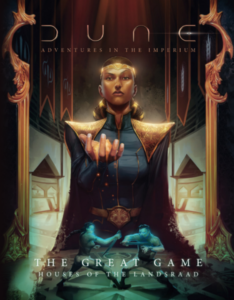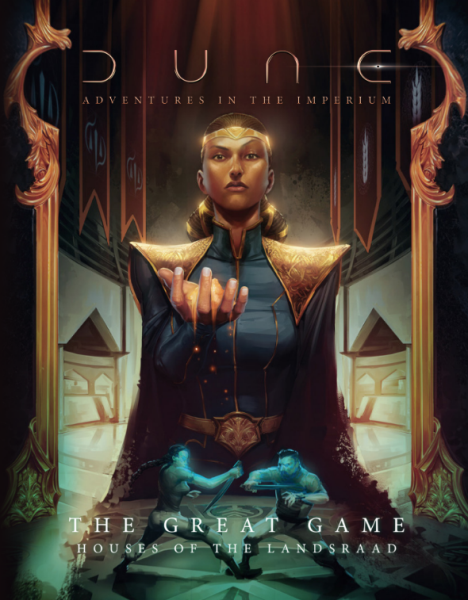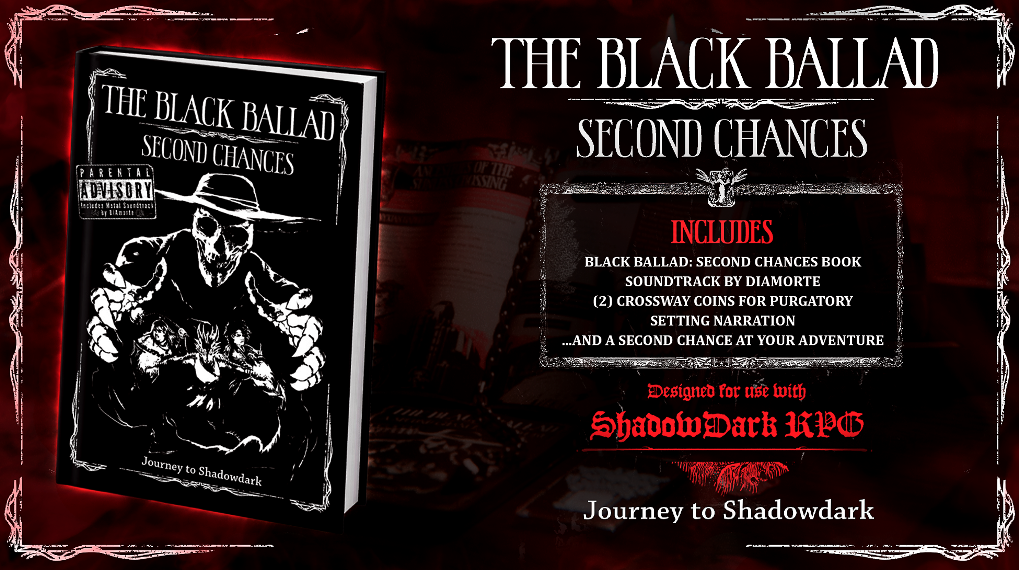
The Great Game
The Great Game is a sourcebook for the Dune roleplaying game, written by Richard August, Simon Berman, Jason Durall, Keith Garrett, Jack Norris, Andrew Peregrine, Hilary Sklar, Devinder Thiara, Mari Tokuda, and Rachel J. Wilkinson and published by Legendary via Modiphius Entertainment.
By Aaron T. Huss

Learn more about The Great Game here
Purchase The Great Game here (paid link)
Find other Dune posts here
Publishers have a history of focusing on Arrakis and the spice war when it comes to licensed Dune games; including Legendary and the Dune: Adventures in the Imperium role-playing game. Rightfully so being how the novels were published, but Dune is an all-encompassing setting that goes far beyond the reaches of Arrakis. That’s where sourcebooks like The Great Game come in.
Dune is a setting rich with the softer sides of science fiction along with it’s more typical sci-fi aspects. There is a wealth of political opportunities in the form a feudal-type system that puts control in the hands of the noble houses and the one person at the helm, the Emperor. The Great Game takes a giant leap out and presents a large slice of the larger setting in the form of the noble houses that comprise the Landsraad, more information about CHOAM, and a deep delve into the Spacing Guild. Then there’s a huge bonus section, but I’ll discuss that shortly.
Within the Dune setting, the planets of the Known Universe are governed by one of the noble houses (Nascent, Minor, Major, and Great) and these noble houses provide representatives that comprise the Landsraad Council. But don’t think this is a grand democracy where each person is treated equally and they operate efficiently as a whole. Quite the opposite according to the source material. In fact, the relationships of noble houses, other than those who answer to a greater noble house, is a lot like the relationship between Democrats and Republicans in the United States Senate. Everyone is basically a frenemy. They are friendly when it’s convenient, allies when necessary, and cautious enemies the rest of the time (or possibly most of the time). Subterfuge is the real name of the game as everyone has an agenda to pursue and their alliances are based on that agenda. (I’d like to point out that the source material illustrates this beautifully.) But the book doesn’t just end at the council, it goes much further by delving into what makes each noble house unique. Not only is this a great tool for the GM but it serves as a means for the players to find what house their group’s agenda fits into; whether they are representatives of that house or allied with it. It even allows them to know who their potential enemies will be.
To keep with the value of this book on both ends of the game, it includes a wealth of player character options for placing your character directly into one of those noble houses, become an agent of CHOAM, or become an agent of the Spacing Guild. These three are weaved throughout each other by the inner-workings of the Dune setting whereas CHOAM is the banking institute the noble houses rely on and the Spacing Guild is the logistical powerhouse that facilitates trade and travel between planets, planetary systems, etc. They effectively create a triangle of influence whereas each side of the triangle is required to complete the picture. When you dig deeper into it, this reliance on each other can be a boon or a bane with political games running rampant throughout (under the surface at least). The GM and the players can use this to their advantage or as a tool to hurt someone else. It’s like a game within a game wrapped inside an RPG! It’s definitely a level of complexity you need to want; otherwise it could be a deterrent to memorable gaming sessions. In this latter case, the GM can use it as noise in the background, always reminding the PCs that their actions are being watched no matter what they do!
The last part of the book is dedicated to a set of complex mechanics for fleshing out every nook and cranny of managing a noble house in an incredibly detailed fashion compared to what’s presented in the core rulebook. Unfortunately I’m not a fan of this type of complexity, but that’s just a personal preference. For those who really want to take their Dune games to the next level of noble house growth (not dissimilar to creating a growing your own kingdom in a fantasy game), then these mechanics will blow you away. These mechanics can be used not only to supplement your campaign, but to add a parallel game in which you develop your house to potentially something much bigger, possibly opening new avenues for your campaign. In all honesty, the GM can use this to guide the campaign in new, exciting ways depending on how your noble house waxes and wanes throughout the Dune universe!
The Great Game is a book of depth and complexity. It is an incredible tool in the hands of both the GM and the players, but is not necessary to have memorable game sessions. Instead, it expands the possibilities of your game sessions, widening them to the greater influences that comprise the Dune setting (political, social, military, etc.). I personally love the direction Legendary is taking with the setting and can’t wait to see what they come with next!

